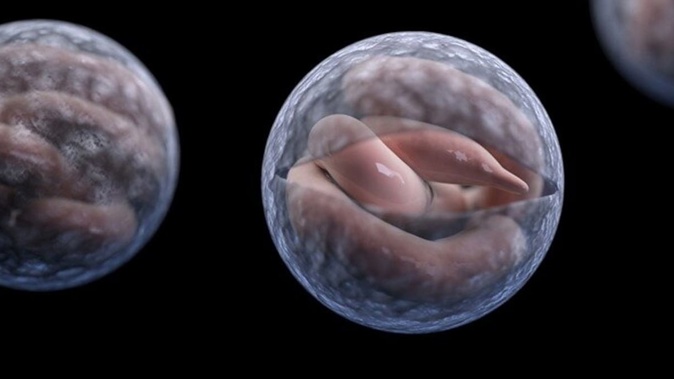
- A Lower Hutt woman said a parasitic stomach bug spreading through Wellington was so bad she nearly called an ambulance.
- The cryptosporidiosis outbreak, which started in a public swimming pool, is now spreading through households, schools, and early childhood centres, with more cases expected.
- Health officials urge strict hand-washing, soap over sanitiser, and two-week pool exclusion after symptoms end to prevent further spread.
Kiwis are warning about the symptoms of a “brutal” parasitic stomach bug spreading through the Wellington region, saying they “wouldn’t wish it on anyone”.
One woman said her husband’s bout of cryptosporidiosis, commonly known as “crypto”, was so severe she nearly called an ambulance.
The highly contagious illness started spreading in the Hutt Valley a few weeks ago through public swimming pools, and has now leaped to Wellington, Porirua, Kāpiti and Wairarapa.
Lower Hutt woman Sarah, who is only being referred to by her first name, said her husband and 1-year-old son caught the bug last weekend and were so violently ill “I nearly called an ambulance”.
“[My husband] was on the toilet at 2am screaming for me to go get a bucket,” she told the Herald.
“I ran down to get a bucket and came back and he’d passed out from overheating, pretty much, but it was almost like a seizure. His eyes were open and he was leaning back.
“I freaked and went to get my phone to call an [ambulance], and slapped him and he came to.”
She said his body temperature was extremely high and he was sweaty, shaking and could not keep any water down.
“Anything he took came straight back out. He was also getting super-intense stomach cramps, it was incredibly painful for him.”
She joked the experience was an example of “through sickness and health, pretty much”.
Meanwhile, her toddler was “vomiting and sh***ing left, right and centre”.
He was “really hard to wake”, but was “happy enough” when he was conscious.
Sarah said the bug was “brutal”.
Another person who had previously suffered from crypto said it was “worse than childbirth, Covid, and any other sickness put together”.
“That was one sickness that laid me out for a good few weeks,” she said on social media.
“That virus is a horrific experience that I absolutely never want to experience again,” wrote another commenter.
Another woman said the illness was a “nightmare”.
“I was in agony and very unwell for nearly two weeks. It was a really tough time, and I wouldn’t wish it on anyone,” she said.
In an updated health notice sent to early childhood education centres (ECECs) and primary, and intermediate schools on Friday, Health NZ’s National Public Health Service warned about the bug spreading through the region.
The latest advice follows a March 18 health alert and comes after an outbreak linked to Hutt Valley’s $68 million Te Ngaengae Pool complex.
Health officials confirmed cryptosporidiosis cases were connected to the toddler pool at Te Ngaengae and the hydrotherapy pool at Huia.
In response, Hutt City Council closed and disinfected both pools using high doses of chlorine and ultraviolet light in accordance with public health guidelines.
 Cryptosporidiosis is a disease caused by a microscopic germ (parasite) called Cryptosporidium. Image / CDC
Cryptosporidiosis is a disease caused by a microscopic germ (parasite) called Cryptosporidium. Image / CDC
“As soon as we were made aware, we took immediate action,” read a statement at the time from Hutt City Pools + Fitness.
“Both pools were closed and underwent an intensive treatment process … There is no indication there had been further cases from the complex.”
As a further precaution, several pools were drained and refilled.
“We have decided to close the shallow leisure and deep leisure pools at Te Ngaengae … and the Huia hydrotherapy pool so they can be fully drained and refilled with fresh water.”
The medical officer of health, Dr Craig Thornley, said, “We think that there may well be more people in the community with the illness because not everybody who gets unwell gets to see a doctor and then gets tested … What we’re seeing is likely to be the tip of the iceberg.”
Thornley noted the number of confirmed cases in late March – 32 in total, with more than half in Hutt Valley – was “more than twice what the Wellington region would record for an entire year”.
He warned alcohol-based hand sanitiser was ineffective against crypto: “The crypto bug is not well killed off by normal hand sanitiser so soap and water is best … The crypto bug stays around for a while, so don’t use swimming pools or splash pads or any other aquatic facilities for two weeks after diarrhoea has stopped.”
In Friday’s new update, Health New Zealand – Te Whatu Ora reiterated the need for education settings to take extra precautions to prevent further spread.
“Crypto can spread in early childhood centres or schools (especially among younger children/tamariki),” the notice said.
“Please continue to reinforce good hygiene messages and illness exclusion policies (return 48 hours after gastro symptoms have stopped).”
It also recommended:
- Soap and water instead of hand sanitiser, which does not kill the parasite.
- Close monitoring of tamariki hand-washing, especially after illness.
- Cleaning with hot, soapy water before applying disinfectants like bleach, as crypto is resistant to many cleaners.
- Strict pool hygiene rules, including ensuring children shower and use the toilet before swimming, and avoiding pools for two weeks post-illness.
The parasite cryptosporidium can cause vomiting, cramping and diarrhoea, and is not easily detected in regular pool-water testing.
Fact sheets and swimming guidelines are available through the Health NZ website.
Take your Radio, Podcasts and Music with you









